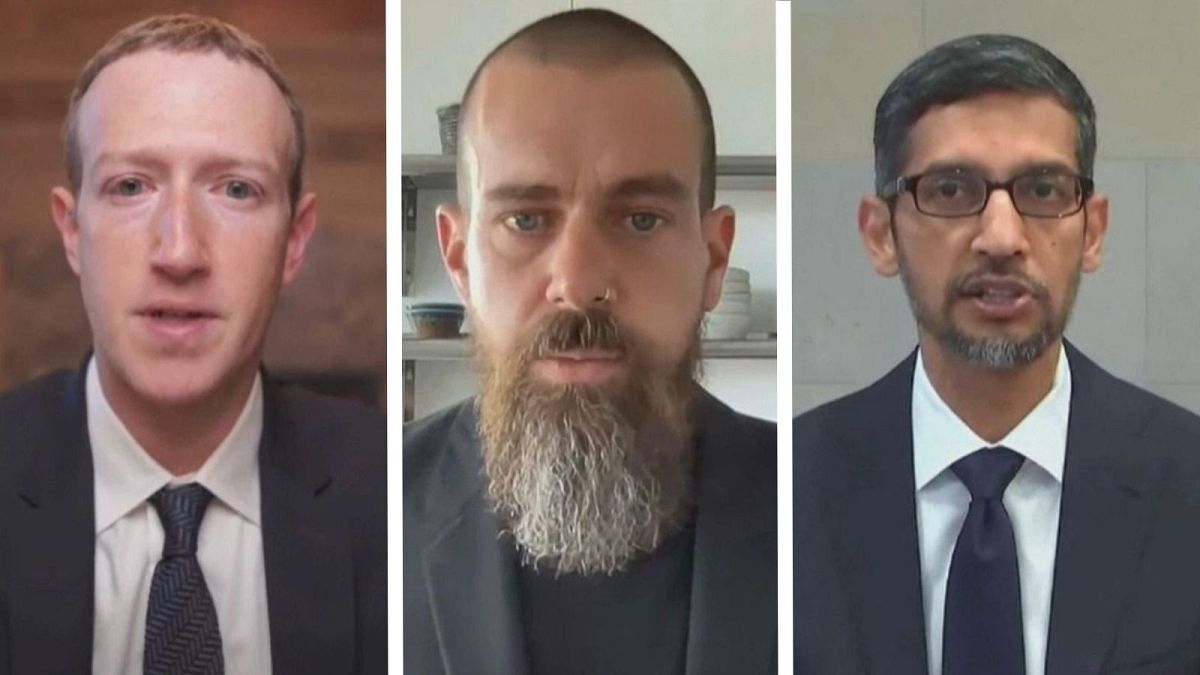Facebook, Twitter, and Google were questioned by lawmakers on their efforts to combat misinformation following the storming of the Capitol building.
The CEOs of tech giants Facebook, Twitter, Google are facing questions in the U.S. Congress on their efforts to tackle misinformation.
Platforms have been under increased pressure to combat the spread of conspiracy theories and incitements of violence after the deadly insurrection at the Capitol building.
Facebook's Mark Zuckerberg, Twitter's Jack Dorsey, and Google's Sundar Pichai have also faced scrutiny amid the rise of COVID-19 misinformation and anti-vax content.
"Industry self-regulation has failed," the House Energy and Commerce Committee said ahead of Thursday's hearing in Washington D.C.
U.S. lawmakers have previously criticised the companies for their market dominance and harvesting of user data.
Republicans in the United States also claim, without providing evidence, that big tech companies have deliberately censored conservative voices online.
President Joe Biden has in the past called for platforms to be stripped of their legal protections under Section 230, which prevents internet companies from being held liable for what their users post.
On 6 January, supporters of former president Donald Trump stormed the US Capitol, leading to the deaths of five people.
For weeks, Trump and his allies had been spreading unfounded claims that the 2020 Presidential election was "stolen" and "fraudulent".
Facebook and Twitter swiftly banned Trump from their platforms, but the tech giants - as well as Google-owned YouTube - have been condemned for their inaction on online falsities.
A recent study found several hundred pages and groups on Facebook that had spread violence-glorifying material to a combined following of 32 million users in the weeks leading up to the deadly Capitol riots.
Facebook acknowledged that its policy enforcement is not "perfect" but said the report distorts its work against violent extremism and misinformation.
"It is tempting to think about misinformation as a single challenge that can be solved with a single solution, but unfortunately that’s not the case," said Guy Rosen, Facebook's vice-president of integrity in a blog post on Monday.
"As with every integrity challenge, our enforcement will never be perfect even though we are improving it all the time."
"While nobody can eliminate misinformation from the internet entirely, we continue using research, teams, and technologies to tackle it in the most comprehensive and effective way possible."
At a Senate hearing in October, both Zuckerberg and Dorsey had defended their policies against misinformation, and all three defended Section 230.
On Thursday, Zuckerberg is expected to urge Congress to update the law, ensuring platforms will receive protection if they prove their systems do identify illegal content.
